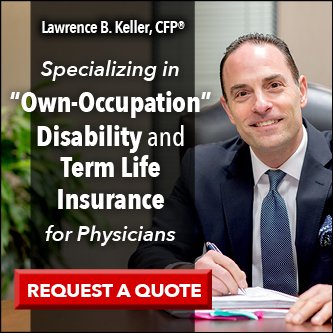During the holiday season we feel a heightened desire to spend more time with our family. Maybe it is because there are multiple family events occurring close together. Many of us end up having two Thanksgiving celebrations, one for each side of the family. Then there are multiple Christmas parties topped off with a New Year’s Celebration. Combine these events with the kids being home on Thanksgiving and Christmas breaks, puts spending time with the family front and center on our activities list.
But when the holidays end, we go back to our normal life where we work too hard, come home too late, and work too many weekends and call nights. Why can’t we have the family closeness of the holidays all year long? Well we can!
There is no reason we have to push our family to the back of the bus and let our career do the driving. Too often we place an unnecessary burden on ourselves letting work dictate our schedule. Yes, our job is important, but it doesn’t have to displace everything else in our life. Our family is our future. The current job may not be the one we have ten years from now. At some point we will retire, and not have a job at all. But our family will be there for the rest of our lives. We should strive to take good care of them and enjoy them while we can.
Placing family ahead of career is opposite of what many doctors do, they make work their priority. It’s time to dump the overbearing work schedule and re-engage with our family. There is no reason that every month can’t be as family centered as December. Let take a look at how this can be done.
The best way to reclaim our lives from our overbearing career is to plan our life first and then fit work into it, instead of focusing on work and fitting life around it. That is a tough concept for professionals. The job we do is very important, but it often becomes so important to us that we unintentionally push our family and everything else away.
Spending time with our family doesn’t just happen; we have to make it happen. If we look for leftover time to give them, it will be a long search because there is no leftover time. We must specifically make the time and put it in our schedule.
Create a livable work schedule from the outset. If we cram our workweek to the gills, it will only get worse as urgent/important things pop up. There are more patients out there than any physician can see. Since we can’t see them all, make sure to set limits at the office to keep this onslaught of patients in check.
If one wants to be a soccer coach for their child, like I did, then do it! Put it into the schedule so the office staff knows it’s protected time. Train them to respect the schedule. If we let them pile on more work, that’s exactly what they will do.
I was once hosting a visiting surgeon and when it came time to get him back to the airport I told him I needed to get to soccer practice. He asked how I could possibly have time to coach soccer. I told him my secret: I tell the office staff what the schedule will be, not the other way around. Soccer practice is from 2-4pm on Tuesday and Thursday and it is on the schedule. Patients cannot be booked into an already filled slot. My staff was taught to respect the schedule and only deviate from it with my approval.
Take inventory of priorities. Write them down and review them quarterly. Being a professional in any field can easily take over one’s entire life, yet there are other important things in life besides work.
Ancillary work will try to creep in as well and it usually comes without additional pay. Committees, chart reviews, continuing education, and many other important things will all take time. Since we only have 24 hours a day available to use and we use 7–8 hours sleeping and 8–10 hours working, we are left with 6–9 hours for everything else. Time needs to be allotted to drive to and from work, eat, exercise, spend time with our spouse and kids, do household chores, visit with friends and extended family, attend evening meetings, and hopefully even find some downtime to recharge during the day.
If seeing a daughter’s recital is important, then put it on the schedule and don’t be late. If spouses would like us home for dinner every night, then make it a priority. No meeting is so important it should interfere with family time. Committees have many members, but our children only have us.
Some of us may have different priorities than I describe here. Maybe some don’t want to see their child’s fifth-grade band concert. Be sure the family understands that. If they know we won’t be there, they won’t be disappointed when we don’t show up. Be honest about it up front.
If career is placed ahead of family in scheduling priority, we will never see our families. A doctor’s job can easily become endless. There will always be a good excuse not to be present—after all, we are busy doctors and what we do is extremely important.
As a resident I remember being taught a saying: The longer you stay in the hospital, the longer you stay in the hospital. This essentially means, there is always more to do if you look for it. So we need to stop looking for more work and start getting home to our families.
We are in control of setting our priorities in life. If we establish our work schedule like a workaholic, that’s what we become. But if we set up our work schedule in moderation, we can fit more into each day than we ever thought possible. Never forget the words of Lynn Johnston who said:
You don’t have to die in order to make a living.
As you spend time with your family this holiday season, think about how you can extend this pattern beyond the holidays. What changes could be made in your office schedule to give you more family and fun time? How would you communicate your desires to your staff, colleagues and/or your boss?
Here are a few ideas to spark your brainstorming.
- Have one day during the week that is protected; no patients scheduled and no call. This will give you a consistent weekday to schedule other activities like your dentist appointment, haircuts, or date nights with your spouse.
- Use some of your vacation days to take three or four day weekends throughout the year.
- Schedule your vacations a year in advance so the call schedule will have to be made around your vacations. Don’t wait for the call schedule to come out and then try to fit in a vacation as it is too hard to change a schedule once it is made. When I was a second year resident, my brother got married. I was in the wedding party and would be performing the music. I was scheduled to be on a one month away rotation during that time. I sent word to the program director at the away hospital six months ahead of time telling him that I needed to be gone the weekend of my brother’s wedding. When I arrived to the rotation, I found I was on call that weekend. The call burden was every other weekend and the rotation could have easily been the opposite of what they booked so I could be at the wedding. I went into the office and told the director about their mistake. The program director told me the schedule was fixed but he would see what he could do. I informed him that he was misinterpreting the situation. I was not in his office to ask for the weekend off, as I had already done that six months before. I was here to let him know I would not be here that weekend. He was a little taken aback by my forwardness since his residents were to do as they were told. The schedule was not changed, the transplant team was just short by one resident during that weekend and all worked out just fine. I didn’t get fired.
- If you want to have soccer practice on Tuesday and Thursday afternoons, then find a way to make your work schedule accommodate it. Book it right into your schedule.
- Get creative with your colleagues and find solutions for each of you to get off for family events.
- Book one late start day each week so you can have breakfast as a family and take your kids to school. They will look forward to this special day each week. There are ways to make this work even if you have a busy fixed schedule. For example, each day one of the anesthesiologist on staff starts at 10am and stays late. This will allow one anesthesiologist to have extra time in the morning and will also enable the other anesthesiologists in your group to get home for dinner. If you coordinate schedules with your colleagues, you can get almost any scheduled event to work out.
- Trade call to accommodate events. I took parts in local plays and musicals during my career. Since the rehearsal schedules include almost every night of the week, I made a deal with one of my partners concerning call so I could be at all the rehearsals and performances. He took all my call for the eight weeks leading up to and including the performances, and then I took all his call for the eight weeks after the show closed. We each benefited from this deal by having two months without call and I got to enjoy a hobby.
If you decide to put your family first by scheduling time with them, you will not regret it. Think outside the box and you will find solutions. If you are not looking for a way, you will not find a way. Enjoy your family now, as you never know how long you will have them in your life. The interesting thing is this will not likely cause a drop in your income, if you were worried about that.
If you want more ideas to make your busy career life better, check out my book The Doctors Guide to Starting Your Practice/Career Right and give your life a reset. You deserve a great live.






Great ideas. Thanks. Perhaps more helpful and more necessary than even your financial advice.